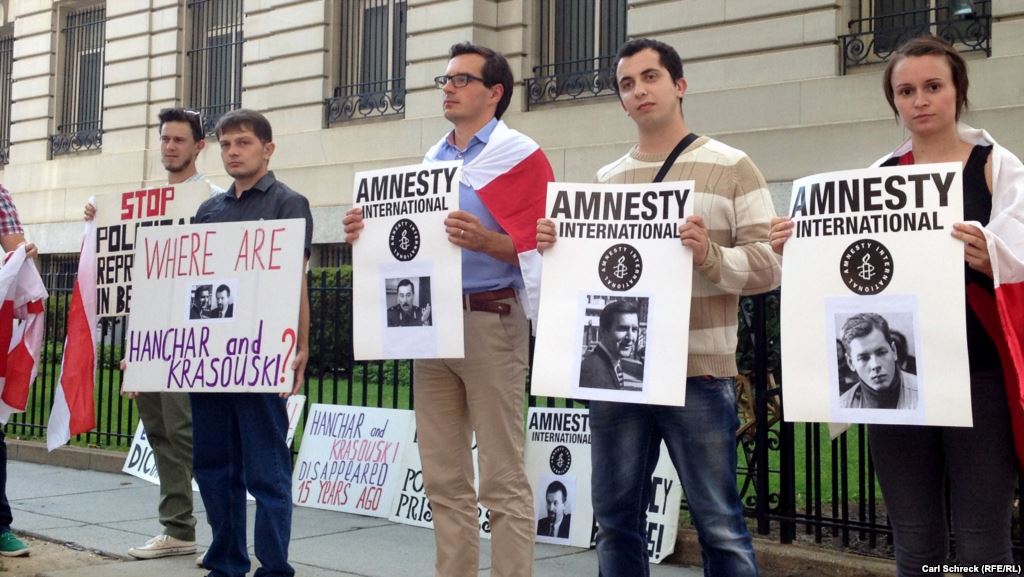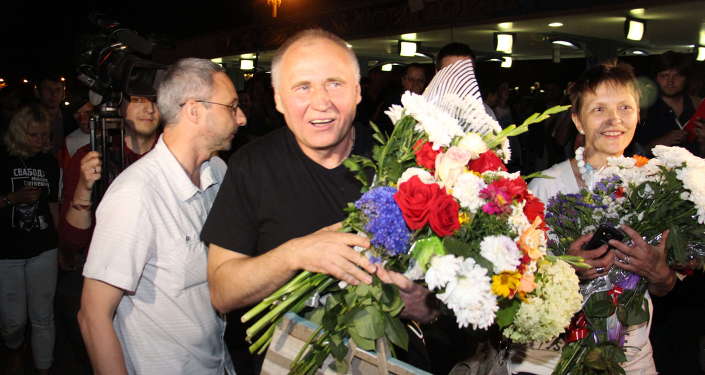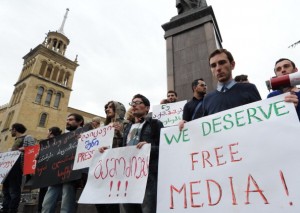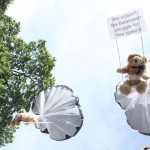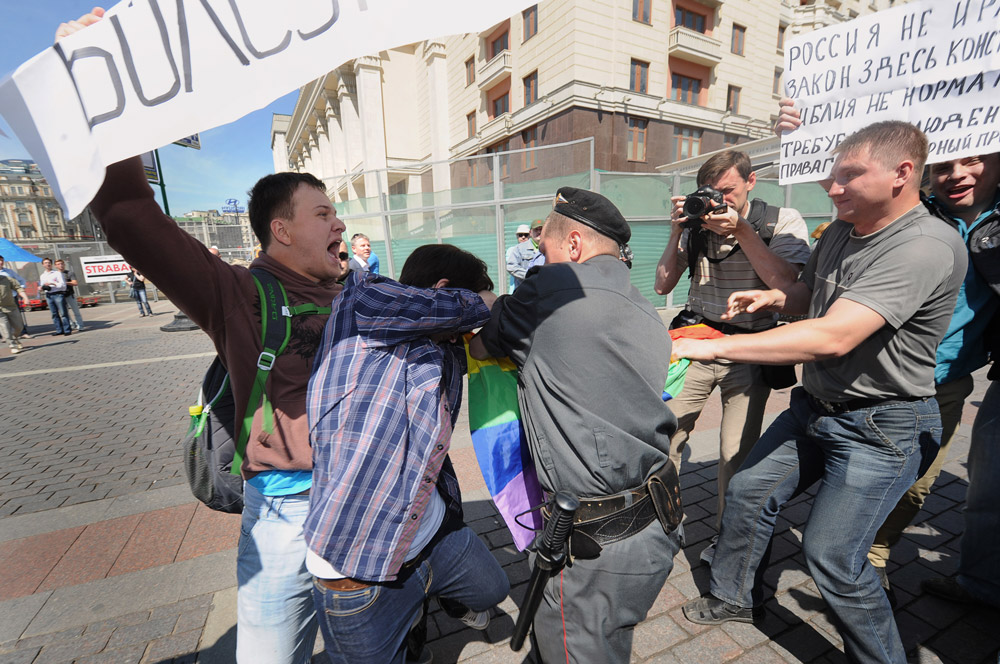
Russian police detain a gay rights activists during an attempt to hold an unauthorized rally in central Moscow. (ALEXANDER NEMENOV/AFP/Getty Images)
In the sporting world, countries from the former Soviet Union are used to winning medals. But in terms of gay rights, the only accolades these countries are winning are the wrong ones.
 Short of outright criminalizing homosexuality as was the norm during Soviet times, Russia and most of its former satellite states are increasingly violating lesbian, gay, bisexual, transgender, and intersex (LGBTI) rights. If a 2012 Eurasia Homophobia Olympics were held today, the “winning” countries trampling on the human rights of LGBTI people would be as follows:
Short of outright criminalizing homosexuality as was the norm during Soviet times, Russia and most of its former satellite states are increasingly violating lesbian, gay, bisexual, transgender, and intersex (LGBTI) rights. If a 2012 Eurasia Homophobia Olympics were held today, the “winning” countries trampling on the human rights of LGBTI people would be as follows:
Gold Medal: Armenia, for officially (and utterly shockingly) justifying and defending the firebombing of a gay-friendly bar by self-described young “fascists.”
SEE THE REST OF THIS POST


